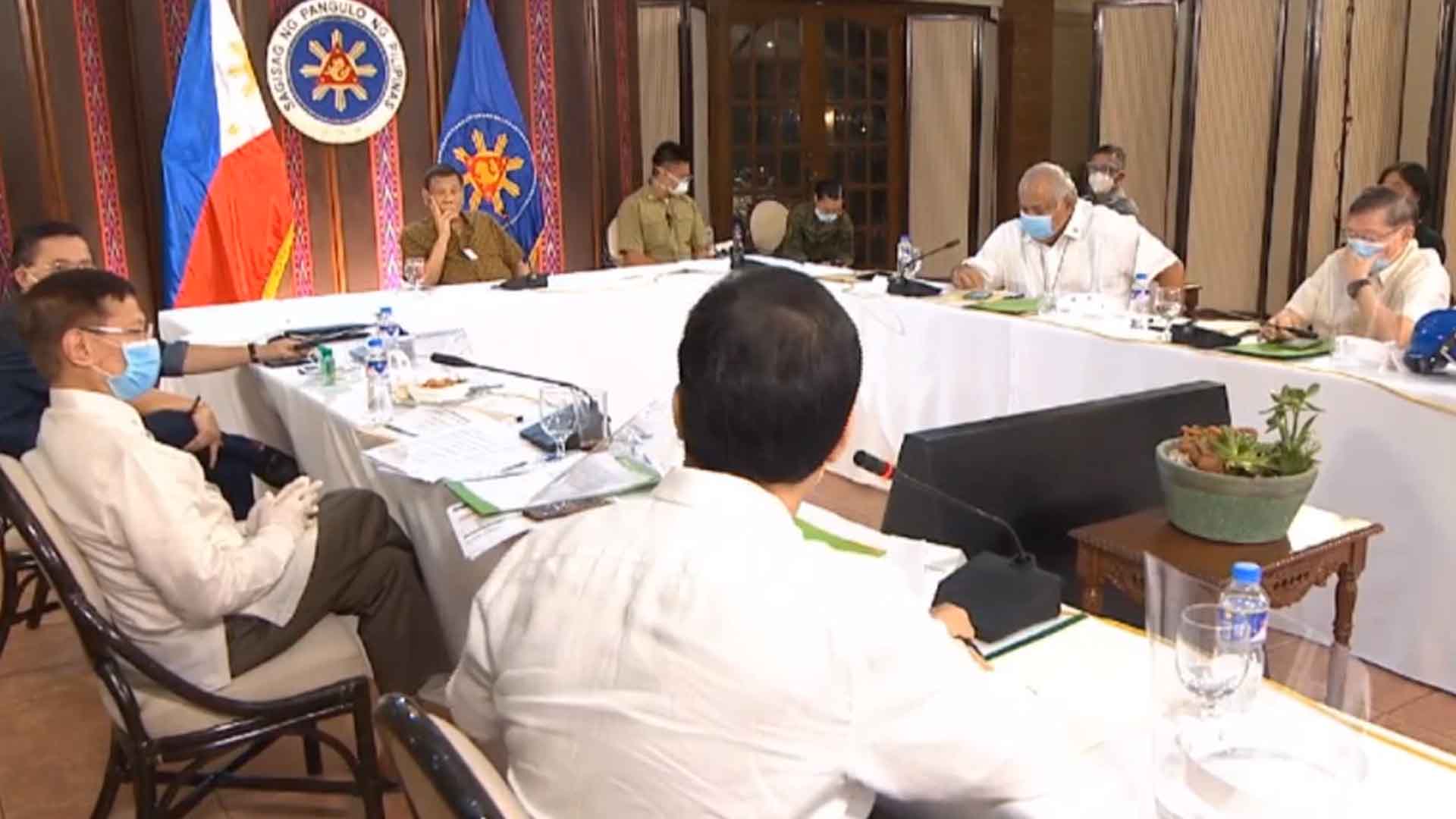More services will be allowed to reopen under the prevailing enhanced community quarantine (ECQ) until May 15 and the general community quarantine (GCQ), which will start on May 1.
In a virtual presser on Tuesday, Presidential Spokesperson Harry Roque said the Inter-Agency Task Force for the Management of Emerging Infectious Diseases (IATF-EID) has recommended a list of sectors that may reopen and those that will remain closed during both the ECQ and the GCQ.
Roque said the IATF’s recommendation is still subject to the approval of President Rodrigo Duterte.
He said stringent measures would still be imposed in areas where the ECQ was extended up to May 15 while areas under the GCQ beginning May 1 will have relaxed quarantine measures.
In areas placed under ECQ, the public transportation system remains suspended and only essential businesses and services will be allowed to operate.
On the other hand, the IATF recommended the resumption of public transport “but in reduced capacity” and the 50 percent to 100 percent reopening of select establishments “subject to minimum health standards” in areas under GCQ.
Roque said the GCQ would be relaxed once the rate of coronavirus disease 2019 (Covid-19) infection slows down.
The sectors allowed in both ECQ and GCQ:
• agriculture;
• industry (e.g. manufacturing and processing plants and the entire value chain);
• hospitals and medical clinics;
• dental and EENT clinics (with strict health standards);
• retail establishments (e.g. groceries, supermarkets, convenience stores);
• food preparation and water refilling stations;
• logistics service providers (e.g. cargo handling, warehousing, trucking);
• delivery services;
• banks and capital markets;
• power, energy, water, IT, and telecommunications supplies and facilities;
• electricity, gas, steam, and air conditioning supply;
• postal and courier activities;
• water collection;
• waste collection;
• sewerage (except emptying of septic tanks);
• veterinary activities;
• repair and installation of machinery and equipment;
• repair of computers and personal and household goods;
• service to buildings and landscape activities (except landscape care);
• employment activities;
• security and investigation activities;
• programming and broadcasting activities;
• rental leasing activities (except for entertainment/mass gathering purposes);
• accommodation (used as quarantine facilities for OFWs and workers of essential industries);
• services to buildings and landscape activities;
• extraction of crude petroleum and natural gas;
• gasoline stations;
• laundry shops (including self-service);
• funeral services;
• export companies (with temporary accommodation and shuttle services; work from home);
• business process outsourcing companies (with temporary accommodation and shuttle services; WFH); and
• mining and quarrying
Sectors allowed during GCQ only:
• other manufacturing activities (e.g. beverages, cement and steel, electrical machinery);
• malls and commercial centers (e.g. hardware stores, clothing and accessories, and non-leisure stores);
• barbershops, salon, spas, and other personal care industries (with strict health standards);
• wholesale and retail trade and repair of motor vehicles and motorcycles;
• construction and Build, Build, Build;
• forestry and logging;
• publishing activities;
• motion picture, video, and television program production, sound recording, and music publishing activities;
• advertising and market research;
• real estate activities (except real estate buying and selling);
• office administrative, office support, and other business activities;
• legal and accounting;
• insurance, reinsurance, and pension funding, except compulsory social security;
• architecture and engineering activities, technical testing and analysis;
• scientific and research development;
• other professional, scientific, and technical activities;
• social work activities without accommodation; and
• government office-frontline offices
Sectors not allowed in both the GCQ and the ECQ:
• gym/fitness studios and sports facilities;
• entertainment-related mass gatherings (e.g. theaters, cinemas, large concerts);
• business-related mass gatherings (e.g. trade shows, conferences, conventions);
• politically-related mass gatherings (e.g. election rallies, polling centers, parades);
• sports-related mass gatherings (e.g. training, games, tournaments, championships);
• libraries, archives, museums, and other cultural activities;
• gambling and betting activities;
• travel agency, tour operator, reservation service, and related activities; and
• activities of membership organizations
Roque said the IATF approved Resolution 29 revising the list of areas that will remain under ECQ from May 1 to 15.
Among the areas are the National Capital Region, Central Luzon except Aurora province, Calabarzon, Pangasinan, Benguet, Baguio City, Iloilo province, Cebu province, Cebu City, and Davao City, which are considered “high-risk areas”.
High- and moderate-risk areas are still subject to further evaluation, he added.
On the last day of the ECQ on May 15, Roque said the IATF would decide whether more areas may be placed under GCQ. (PNA)
Photo Source: Facebook/BongGoPage








